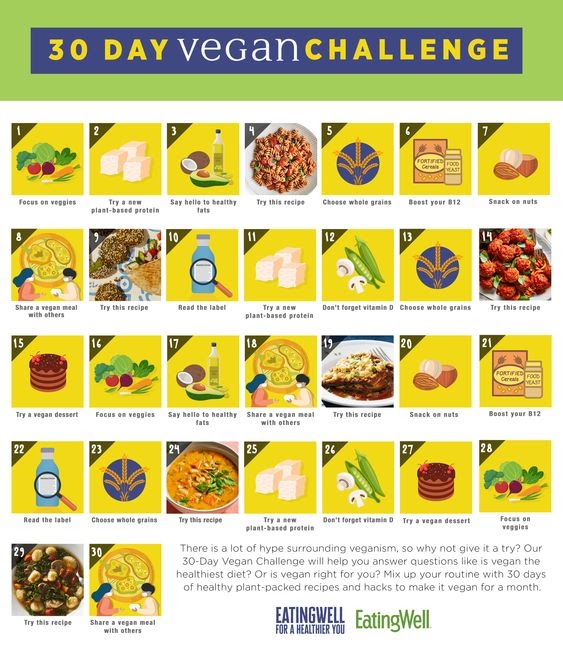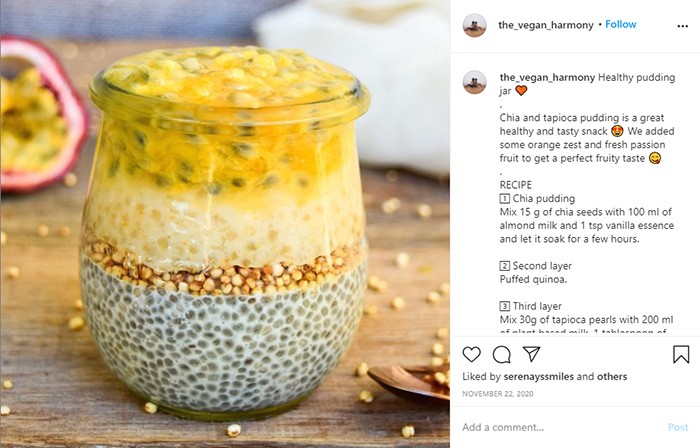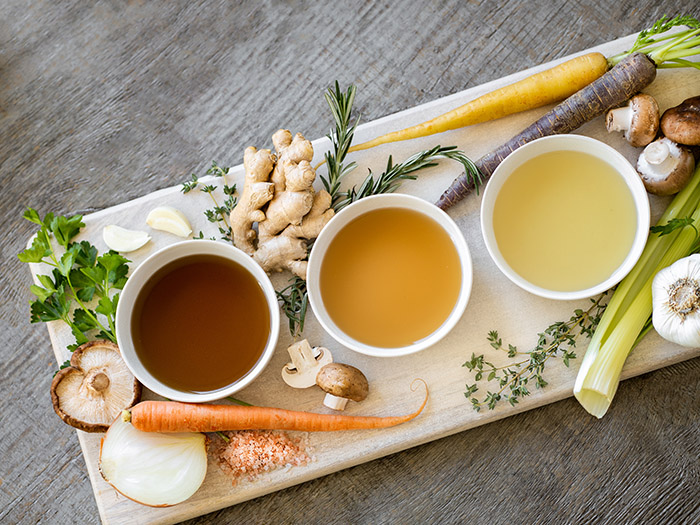Meat-free alternatives and veganism gained considerable traction throughout 2020 in light of people’s unprecedented focus on health and sustainability. The many benefits that consumers’ link to eating less meat – including saving money, improving overall health, feeling good, maintaining weight, and reducing the risk of disease; are likely to become even more attractive in the aftermath of this crisis.
In addition, the increased consumer consideration of environmental issues is likely to give added impetus for consumers to adopt a plant-based diet. As a result, the vegan market is bound to experience significant growth in 2021.
In this blog, we outline the 5 key trends shaping the food industry in the upcoming years and discuss how vegan brands can take advantage of them in their marketing efforts.
Key Food Trends to Follow
Home cooking gains popularity
With fewer time constraints during the COVID-19 pandemic for many, scratch cooking is slowly becoming one of the at-home pastimes that people are turning to or discovering for the first time to help them through this difficult period. Furthermore, for many who find themselves under financial strain as a result of the lockdown, scratch cooking also has an economic appeal.
In other words, the lockdown has presented a great opportunity for people to gain experience and confidence cooking at home, meaning that many will be keen on building on this foundation and putting their newly acquired culinary skills to good use over the years ahead.
In fact, a Mintel research revealed that the virus has created a long-term interest in home cooking, with 55% of the nation saying they plan on cooking more from scratch after the coronavirus outbreak than they used to.
How to Respond
Having this in mind, vegan food brands should focus on promoting home cooking by highlighting all the emotional benefits that come from this activity – such as enjoyment, comfort and pride, as well as the functional and financial aspects of it.
One big barrier that vegan brands will have to overcome though is the home cooking fatigue which is likely to have set in during the lockdown. Mintel reports that 31% of under-25s are concerned about getting bored of eating the same food as a result of the coronavirus outbreak.
This presents an opportunity for vegan brands and retailers to provide meal inspiration to those who have exhausted their usual repertoires of meals.
EatingWell, for example, recently ran a social media campaign inviting people to a 30-day vegan dish challenge. This provides daily inspiration for a wide range of ‘healthy plant-packed recipes and hacks to make it vegan for a month’.
 Self-treating as an essential feel-good factor
Self-treating as an essential feel-good factor
The perceived need for low-cost mood boosters has perhaps never been greater, particularly in the midst of the uncertainty and political division sparked by Brexit. In a Mintel survey, 28% of people in the UK say they are eating more treats since the outbreak, with people aged 16-24 increasing their treats consumption by 40%.
However, on the flip side, self-treating is likely to be hindered to a certain extent by the greater emphasis many people have been placing on healthily eating since the start of the pandemic. This is likely to see some people replacing unhealthy treats with better-for-you options such as foods labelled as vegan, organic, gluten-free, non-GMO etc. Furthermore, home baking can also tap into the heightened demand for indulgent treats.
How to Respond
With the increased demand for healthier treats and a shift to plant-based diets, vegan desserts are bound for further growth. This means that vegan food brands should focus on satisfying the sweet tooth of vegans and non-vegans alike, by offering vegan home baking recipes and promoting desserts with health benefits and nutritional value.
This includes vegan desserts with functional ingredients such as matcha, goji, turmeric, black garlic, dragon fruit, hemp, chia, beets, manuka honey, ginger, maca, and more.
 Emotional wellbeing is in the limelight
Emotional wellbeing is in the limelight
COVID-19 isolation measures have escalated consumers’ focus on mental health, with levels of stress, anxiety, and feelings of sadness and loneliness surging.
To illustrate, a study led by the Universitat Oberta de Catalunya (Spain) and Open Evidence, has revealed that 57% of the people in the UK felt down, depressed or hopeless about the future due to the coronavirus crisis.
How to Respond
This trend demands that vegan food brands forge strong links between their brand and emotional wellbeing in order to appeal to consumers. The marketing theme of treats and bringing people together, for instance, has been gaining a lot of traction lately.
One memorable example of this is McVitie’s 2019 ‘Let’s Talk’ campaign in partnership with mental health charity, Mind. The aim of this campaign was to promote positive mental health by shedding light on the issue and encouraging people across the UK to “get talking”.
Marketing campaigns around vegan products with similar sentiments would be very relevant in today’s reality of social isolation due to the pandemic and would likely receive lots of positive reactions.
Boosting the immune system becomes a priority
Many consumers are looking for health-boosting nutrition more than ever in order to help protect themselves and their family from the risk of the spreading disease. Within this, the importance of strengthening the immune system has come to the foreground.
66% of UK adults believe that consuming foods rich in Vitamin C supports the immune system, and 37% say that the pandemic has prompted them to add more nutrients that support the immune system to their diet.
This is reflected in a Google Trends analysis, the results from which reveals the profound impact of COVID-19 on consumers’ interest in immune-boosting ingredients and herbs globally. The reported data shows a marked rise in searches involving keywords such as Vitamin E, C, D, A, B, turmeric, zinc, ginger, selenium, curcumin, coffee, and garlic.
 How to Respond
How to Respond
“Immune boosting” is a trending topic during the COVID-19 pandemic, and therefore, can be used to support sales of products with added health benefits, particularly those which are fortified with vitamins linked to the immune system such as Vitamin C.
Social media and Instagram, in particular, have played a major role in promoting this trend, with data showing that between April 2020 and May 2020, the popular hashtag #immunebooster increased on Instagram posts by over 46%.
Interest in this area will likely help vegan brands to market their ‘immune-boosting’ products – both food, supplements or skincare, and further enhance the link between wellness and veganism through their content.
Online food delivery is here to stay
In recent years the rise of takeaway delivery services has completely disrupted the way we eat and order food, and the coronavirus outbreak has only served to accelerate this trend.
The forced on-premise closures of pubs and restaurants in 2020 meant that the only way for people to replace ‘eating-out’ occasions was by relying on takeaway food delivery services.
And although lockdown restrictions will eventually be relaxed, the demand for food delivery services is expected to remain. According to the Global Web Index, digital delivery sales are projected to grow at an annual rate of 22% in the next three years, meaning that people will continue to use these services beyond the pandemic.
 How to Respond
How to Respond
The increased demand for online food delivery, hand in hand with the rise in interest in plant-based diets, is likely to create a lucrative opportunity for vegan brands to offer food delivery subscriptions and meal boxes.
Industry leaders like Allplants and Vibrant Vegan are already offering ready-to-eat meals for delivery, and many big chains and independent vegan businesses have their meals available to order on major delivery apps. In fact, recent data shows that in the past year, UK’s Deliveroo has seen a huge 187% increase in vegan orders, with almost 30% of main meal orders during the lockdown being meat-free.
This information signals a hungry appetite for new vegan and veggie dishes that vegan food brands can satisfy.
To sum it up…
The pandemic has been the catalyst for huge opportunities in the vegan market, characterised by a heightened interest in physical health, emotional wellbeing, and the environment. These changes in consumer behaviour have generated immediate benefits to those already adapting to the new consumer needs, and are likely to leave lasting legacies in the long-term.
This highlights the need for vegan brands and retailers to act fast and respond to new trends in their industry with effective marketing strategies aimed at capturing the demand.
How effective is your strategy? Our team can help you respond to the rapid changes in consumer preferences in your industry due to the COVID-19 crisis through impactful digital marketing strategies. For more information, please contact our team!


 Emotional wellbeing is in the limelight
Emotional wellbeing is in the limelight How to Respond
How to Respond How to Respond
How to Respond